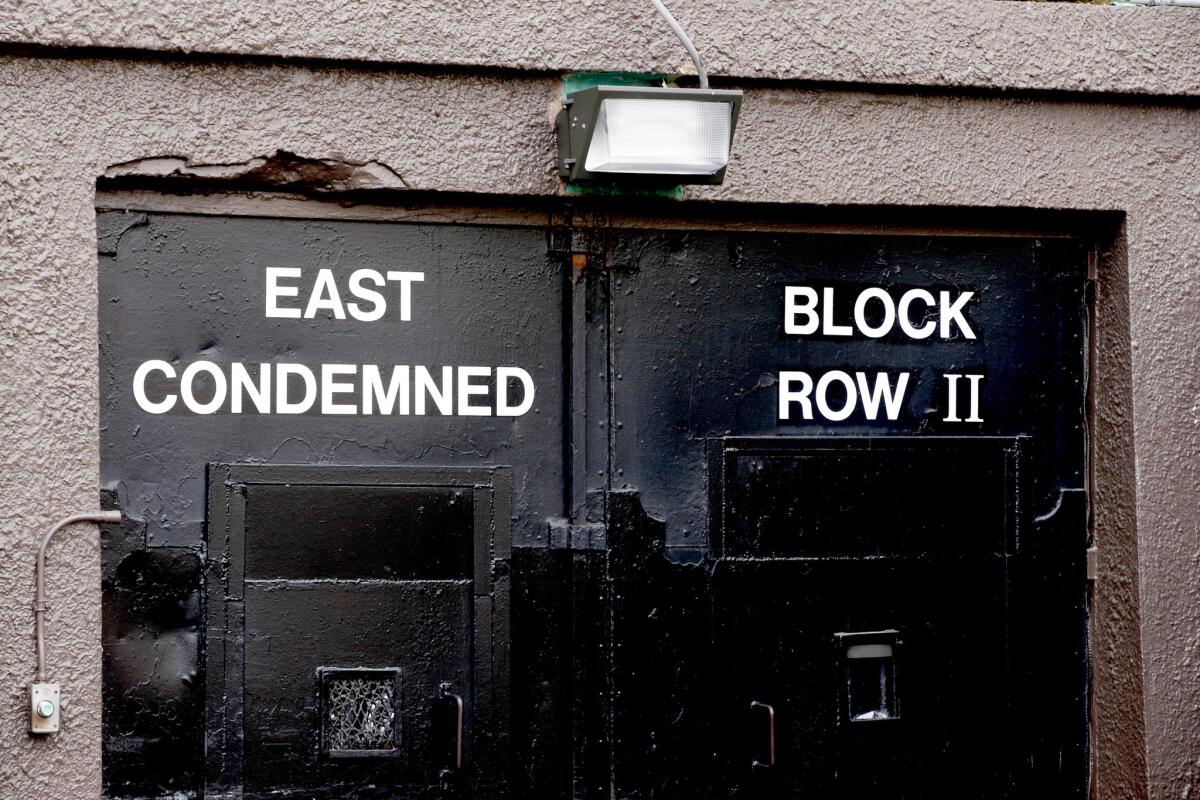Opinion: Kentucky judge rules out death penalty for murders committed by people under 21

A Kentucky circuit court last week issued an unusual, reasonable and welcome ruling: It is unconstitutional to execute people for murders committed when they were younger than 21. Why? Because research increasingly shows that the human brain has not fully matured — particularly in areas of impulse control and risk-assessment — until people are well into their 20s.
At the same time, according to the ruling, fewer people have been executed in recent years for crimes committed between the ages of 18 and 21, signaling a shift in the “evolving standards of decency” that earlier had informed Supreme Court decisions protecting from execution people who were first under 16, and later under 18, as well as the intellectually disabled and people too mentally ill to understand why they are being executed.
“It appears there is a very clear national consensus trending toward restricting the death penalty, especially in cases where defendants are 18 to 21 years of age,” Circuit Court Judge Ernesto Scorsone wrote.
Capital punishment is an immoral and unjust system, and the nation’s adherence to it makes the U.S. an outlier among its peer societies.
The death penalty is wrong in all circumstances. Beyond the inherent immorality of a state executing its citizens, the system is too prone to manipulation and error for use as an arbiter of who should die — decisions that have fallen disproportionately on minorities and the poor. That arbitrary application should be a red flag for people who profess to believe in equal application of the law.
The death penalty also is inconsistently sought by prosecutors and not reserved for the “worst of the worst.” Similar murders committed in adjoining counties can draw a death sentence in one and a life sentence in the other purely based on the outlook of the prosecutor. Even a new district attorney in one of those counties can mean a change in whether the death penalty will be sought (that happened in Riverside County, where a new D.A. dropped the death penalty in seven of 22 inherited cases). Thus the whims of an individual can determine whether to seek an execution.
Then there’s the exorbitant cost of appeals to make sure the innocent aren’t mistakenly put to death — an assurance that cannot be absolute, even though an execution is.
All in all, capital punishment is an immoral and unjust system, and the nation’s adherence to it makes the U.S. an outlier among its peer societies.
In its 2005 Roper vs. Simmons decision, the U.S. Supreme Court held that executing someone for a crime committed before age 18 violates the 8th Amendment’s ban on “cruel and unusual punishment.” Not that age exculpates them from responsibility, but that because minors are still evolving into adulthood and do not have the same tools and skills for judging their own actions and their consequences, execution would be an excessive penalty.
“Their own vulnerability and comparative lack of control over their immediate surroundings mean juveniles have a greater claim than adults to be forgiven for failing to escape negative influences in their whole environment,” Justice Anthony M. Kennedy wrote for the majority. “The reality that juveniles still struggle to define their identity means it is less supportable to conclude that even a heinous crime committed by a juvenile is evidence of irretrievably depraved character.”
Thus, by definition, a juvenile cannot be among the “worst of the worst” for whom the death penalty is supposed to be reserved.
In his decision last week, Scorsone wrote that a growing body of studies shows that the same argument the Supreme Court made to bar execution for crimes committed before age 18 applies to those committed before age 21 — because key aspects of human growth and maturity, particularly impulse control, are not fully developed until the mid-20s. Given the exclusive finality of an execution, prudence dictates broad latitude be given to the brain science.
Incidentally, California’s death row includes 87 people who were sentenced to death for murders committed when they were age 18, 19 or 20. That amounts to 12% of the 748 condemned inmates.
So why draw the line at age 21? The most recent studies indicate that the brains of people under that age are still maturing, though there is no bright line on when that process ends.
So it makes sense, at a minimum, to bar the execution of people who committed murder before age 21, and to ensure that courts consider individual traits and circumstances in deciding whether an older defendant’s actions merit the death penalty.
Again, no criminal act by an individual should result in execution by the state, but if a death sentence is handed down, it should only be in cases in which the condemned is a fully fledged adult and able to fully understand actions and consequences.
And again, this does not mean people should not be held accountable for crimes they commit under age 21, but that they should not be eligible for execution because, as Scorsone wrote, “they are more likely than adults to underestimate the number, seriousness, and likelihood of risks involved in a given situation.”
The Kentucky appellate courts should uphold this standard, and other capital punishment states should adopt it. Human decency demands it. And with such reductions in the pool of the execution-eligible, the nation also would continue to evolve its standard of decency to eventually bar the barbaric practice altogether.
Follow my posts and re-tweets at @smartelle on Twitter
More to Read
A cure for the common opinion
Get thought-provoking perspectives with our weekly newsletter.
You may occasionally receive promotional content from the Los Angeles Times.







